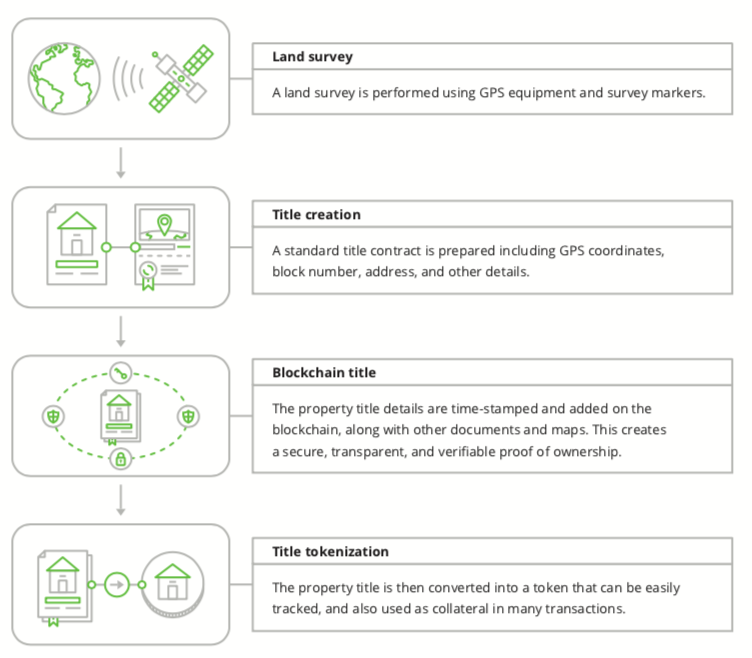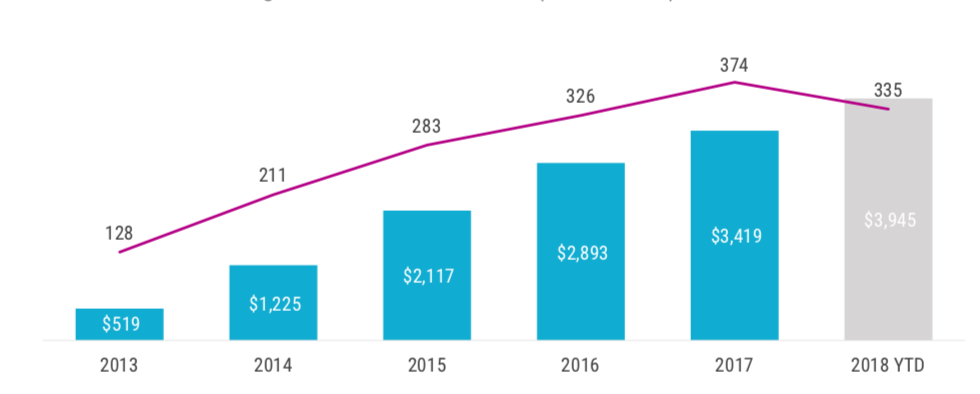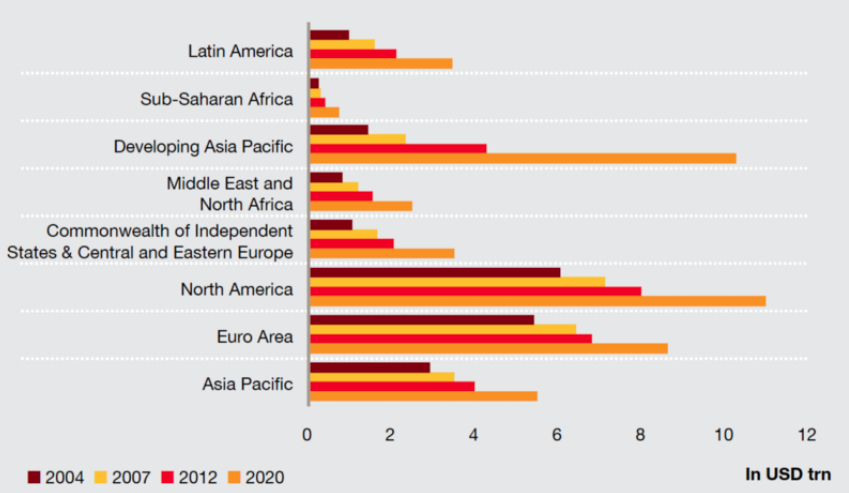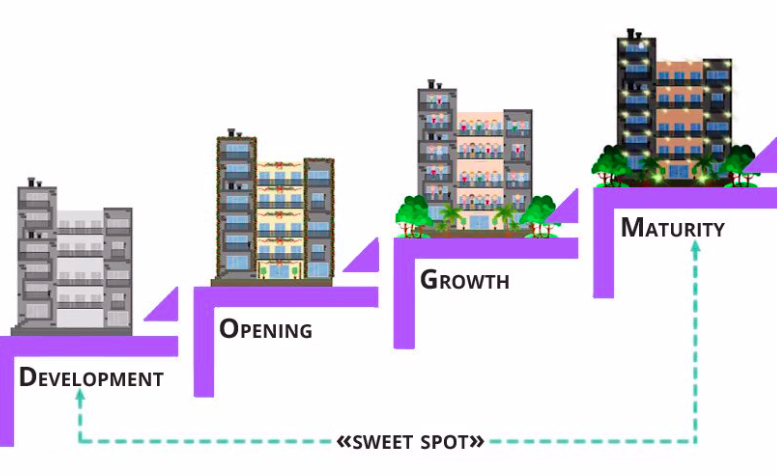Latest news about Bitcoin and all cryptocurrencies. Your daily crypto news habit.
Commercial Real Estate (CRE) Tokenization — What You Need To Know
The blockchain is an immutable distributed ledger technology in which transaction data is recorded. Its benefits include transparency, traceability, accessibility, enhanced security, cost reduction of processes, and irrevocable documentation of the processes. More details on Blockchain applications can be found here.
The ability of Blockchain-based processes in executing transactions without an intermediary or a clearinghouse very much suits a private market like real estate. The distributed ledger holds a history of a transaction, a property, an asset, or a title; it develops a digital secure identifier for a proposed transaction; and it offers an ability to transfer funds in new ways, for example using a digital encrypted (or crypto-) currency such as Bitcoin.
Blockchain in real estate, therefore, can eliminate the need for intermediaries like lawyers and agents by providing a means of property verification and payment to buyers. Paying for a property using cryptocurrencies can also help buyers bypass bank fees. It cuts the fees associated with escrow by using smart contracts that can be customized according to users’ needs. The technology could also make it easier and provide more accurate deed transfers, improve transparency issues in investing and lastly, speeding up MLS (multiple listing services) listings.
The tokenized nature of cryptocurrencies makes crowd ownership and fractional sales of real estate possible.
Average Joe and Jane might not be able to afford whole properties or even have access to Commercial Real Estate offerings. Transferrable and tradable tokens, representing shares and ownership, the new liquid way for property and landowner to sell or enable growth-financing, accessible to a broader investor crowd.
Innovation for Real Estate
ATO (Asset Token Offering), STO (Security Token Offerings), DSO (Digital Securities Offerings), or TAO (Tokenized Asset Offerings) allow firms, projects or property owners to crowdfund real estate development using cryptocurrency by tokenizing assets. Here’s an article to learn more on how to tokenize assets: Security Token Offerings (STOs) — What You Need To Know
Security tokens are exactly what they sound like; securities on a Blockchain. A security token could digitally represent any number of real-world assets, from commodities, real estate or car title, to shares of a company or bonds. Therefore, security tokens are subject to securities regulations.
Tokens are also “programmable.” The code can determine how they’re used based on pre-defined criteria. For example, earning from rental can be automatically payed-out according to an agreed-upon schedule to token holders. This code can be executed without the use of a traditional middleman, like a bank.
Tokenizing assets — like a venture fund, a building or a car — enables new liquidity to these asset investments, through much easier ways of trading these assets over the web.
The Potential for Tokenized Real Estate
Wouldn’t it be great to buy a home with a few clicks and sell it in the same manner?
A world where value is exchanged at the speed in which information moves today. Blockchains’ emerging technology, we are already able to use the internet to securely transfer tokens of value; seamlessly, peer-to-peer, without intermediaries.
2012–2018, real estate tech companies have raised over $12 billion in funding and 6 companies have been minted to the unicorn club.
2004–2020, global real estate investments, by region, in USD trillion…real estate emerges as the biggest asset class out there (not counting derivatives), today worth approximately $217 Trillion.
A real estate market where each property is represented by a limited supply of unique tokens that give certain rights (e.g. use of property, voting, ownership) to those holding them. These tokens are linked exclusively to the real estate asset in question and can be securely transferred to other users in exchange for payment at any given moment, simply by using your smartphone. When rights to a house, apartment or an office are represented by tokens created on an immutable, permanent, verifiable and auditable Blockchain infrastructure, the underlying asset becomes inherently divisible. This new characteristic transforms a once cumbersome and lumpy real estate property into a transportable liquid digital asset.
Predictions estimate, that by 2021 most real estate crowdfunding platforms will leverage tokenization. Investors online might be incentivized to invest in deals that offer a potential 5–30% liquidity premium upside, making the ‘traditionally’ crowdfunded investments less appealing.
Supercharging Real Estate Crowdfunding
Security tokens are digital shares that live on a Blockchain. They offer an efficient path to fractionalize a single high-value asset like a real estate property. With the increased trading activity of fractional ownership, price discovery will be enhanced and markets will become more efficient for assets that have historically traded infrequently due to high unit costs. Blockchain-based digital shares are changing how we invest online, as liquidity is increased through secondary markets. A tokenized real estate property can be traded anywhere, without limitations. The Blockchain ecosystem is a technology stack where “always open” is the de facto standard on exchanges, where tokenized properties can be traded 24/7.
Digital shares outperform other methods of recording and trading ownership claims:
- 24/7 markets
- Decentralized trade
- Transactional transparency
- Irreversible code
- Public auditing
- Investor pseudo-anonymity
- Rapid settlement
- Reduction in direct costs
- Increased liquidity and market depth
- Fractional ownership
- Programmability
- Automated compliance
- Asset interoperability
- Self-custody
- Fees = fraction of traditional costs
- Accurate land titles
- Cross-border simplification
In our world of continued technological revolution, most new technology comes with a promise to improve business and profitability. And whether one likes it or not, there can be a threat to survival if a business doesn’t adapt to the changing times. As Blockchain technology continues to evolve, it is challenging status quo and perhaps requires CRE companies to better understand the technology and revisit their existing business model, strategy, processes, and financial plan.
Blockchain technology has significant potential to drive transparency, efficiency, and cost savings for CRE owners by removing many of the existing inefficiencies in key processes. Hence, CRE companies and industry participants have to evaluate a potential upgrade or overhaul of their current systems and strategy. Blockchain-based tokenization is essentially the issuance and distribution of digital shares. It’s here to stay — and to bring investors higher liquidity, better diversification opportunities, distributed risk through token holders, and open new marketplaces through peer-to-peer transactions.
Sources: CBInsights, Moonwhale, PwC, Deloitte, University of Oxford, McKinsey
About me:
Iliya Zaki is the Business Development and Marketing Officer for Moonwhale Ventures.
Moonwhale Ventures is a Blockchain Technology Consultancy and Investment Platform, helping businesses on Blockchain implementation, expansion/ new venture building, fundraising, go-to-market strategies.
For more information on how we can help you explore blockchain technology for your business: Blockchain Consulting
Follow us on our various social media platform. —
Twitter | LinkedIn | Facebook |
Commercial Real Estate (CRE) Tokenization — What You Need To Know was originally published in Hacker Noon on Medium, where people are continuing the conversation by highlighting and responding to this story.
Disclaimer
The views and opinions expressed in this article are solely those of the authors and do not reflect the views of Bitcoin Insider. Every investment and trading move involves risk - this is especially true for cryptocurrencies given their volatility. We strongly advise our readers to conduct their own research when making a decision.





